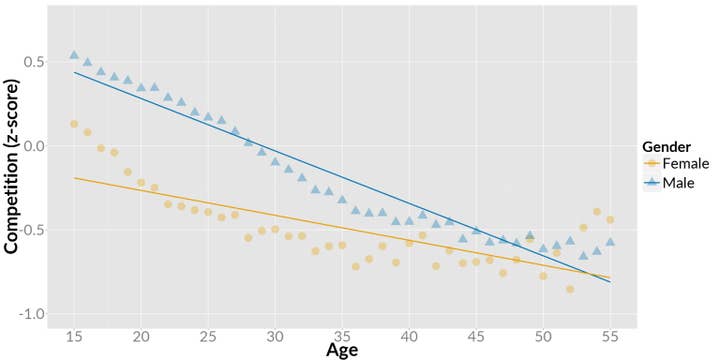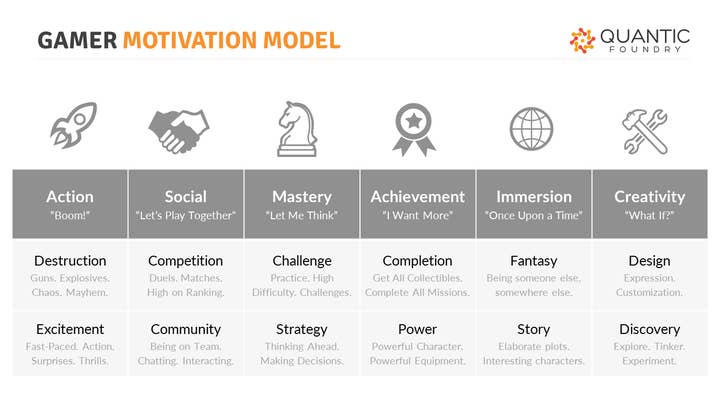Study: As gamers age, their competitive instincts wane
People are playing until older, but they're not interested in contests
In a study that's unlikely to surprise many people over the age of 30, analytics firm Quantic Foundry has found that, although we're gaming until a later age than ever before, our interest in competitive play drops off sharply as we mature.
The report comes from a study of over 140,000 respondees who were asked to rate their motivations in pursuing an ongoing gaming habit. All twelve of the areas measured (destruction, excitement, competition, community, challenge, completion, strategy, power, fantasy, story, design and discovery) were found to decline over time, it's the desire to prove ourselves against our peers which suffers most, whilst the appeal of strategic play is the most enduring.

The study also found that, although the competitive instinct is highest amongst young men, the divide between genders all but disappears around the age of 35.
With the average age of gamers increasing daily, understanding the motivations of cash-rich, time poor older players becomes ever more important for designers, marketers and service providers. Still, even a proper understanding of today's older players isn't necessarily an indicator of how today's 18 year olds will be playing in 20 years time.
Whilst the study is an interesting window into the habits of people who grew up with the Spectrum, SNES and SEGA, author Nick Yee acknowledges that the experiences which those players had growing up are very different from those of children today - a factor which will affect which aspects of their hobby they enjoy most now. In other words, the danger is that the study could in fact show what people who were born in 1980 value, rather than what a 35 year old born in any year finds important.

"These findings are based on cross-sectional data, and we comment on this potential risk in the second-to-last paragraph," says Yee in response to a question on Quantic Foundry's blog. "The generational cohort effects are difficult to quantify and control for unfortunately. And the larger problem is that even if we did actual longitudinal tracking of the same gamers over time, we would still only have one cohort in the oldest bucket and no one else to compare them with.
"On the other hand, if the effects were entirely driven by cohort game styles, it's strange that the trends across the 12 motivations are almost always linear and not more chaotic due to the rise and wane of different game genres, etc. The stable linear trends across the four decades of data seem to be better explained by age.
"To fully address the confound, we'll have to wait till several generational cohorts pass through the 35+ threshold, and examine the stability of these trends. Since that kind of research takes decades, the cross-sectional data, imperfect as it is, gives us the best clues as to how gaming motivations change with age."

